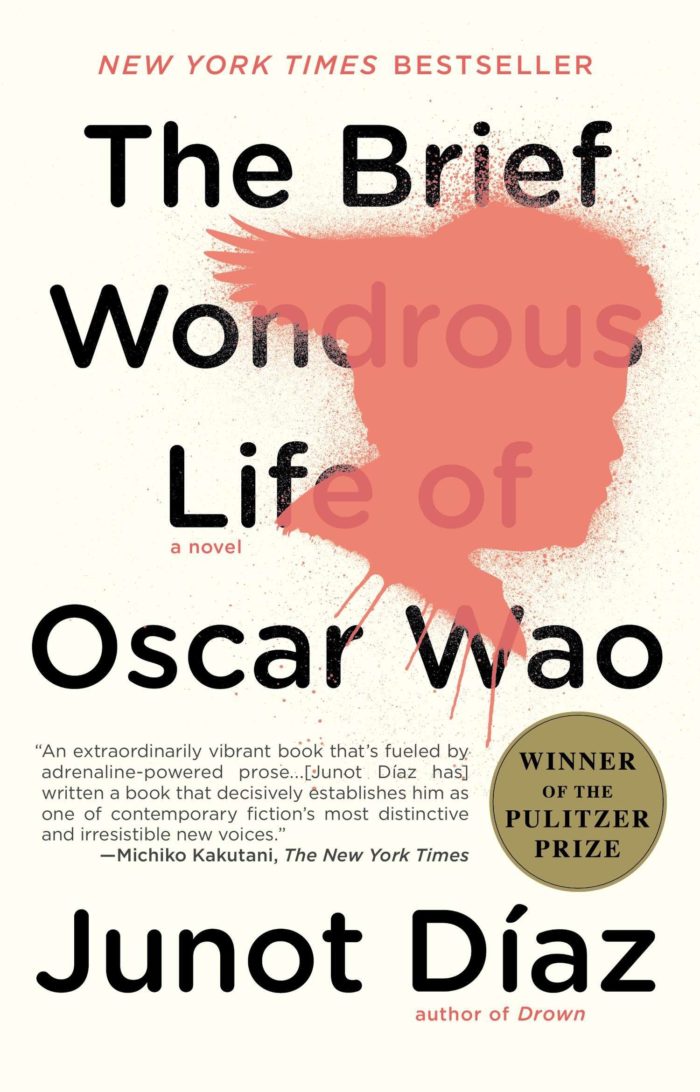By Ruby Setara
The American Psychological Association lists the ideal Western characteristics of masculinity as any behaviors “related to toughness, stoicism, heterosexism, self-sufficient attitudes, and lack of emotional sensitivity” (Wall and Kristjanson, 2005). Any qualities, interests, or attitudes that counter such rigid standards of masculinity — including homosexuality, crying or showing affection, and lack of aggressiveness— often leads to voluntary (or in some cases, involuntary) isolation. This social quarantine has detrimental psychological effects on a child’s social and emotional growth, including, but not limited to: depression, social anxiety, and overwhelming diffidence.
Masculinity creates varying expectations in different cultures. Dominican masculinity —or machismo — places a considerable emphasis on having excessive sex with women, playing sports, and being a domineering force in any situation. Oscar, the protagonist of Junot Diaz’s book, The Brief Wondrous Life of Oscar Wao, can’t conform to the rules of Dominican masculinity, which leads to Oscar’s eventual demise. However, Oscar embracing his quintessentially anti-Dominican persona is not to blame for his death; instead, the blame for this tragedy rests on a series of unfortunate circumstances and lamentable decisions.
Oscar de Leon became alienated due to no fault of his own. In fact it was his environment —which included his low-performing public high school and hyper-masculine family members — that pulled Oscar deeper into his lonesome niche. Diaz describes Don Bosco Tech High School in the book as: “the equivalent of a medieval spectacle, like being put in the stocks and forced to endure the peltings and outrages of a mob of deranged half-wits…” (Diaz, p.19). A person like Oscar, who “…used a lot of huge-sounding nerd words like indefatigable and ubiquitous when talking to [expletive deleted] who would barely graduate from high school” (Diaz, p.22), was marked as an outcast because he did not fit the mold of a typically rowdy, detached and uninterested young man at Don Bosco.
De Leon’s interest in comic books, cult films, and video games, also did not sit well with his family members, almost all of whom are described as stereotypical Dominicans. In the book, we learn that when Oscar was going off to college “…his mother gave him a hundred dollars and his first kiss in five years, his tio a box of condoms: ‘Use them all,’ he said, and then added: ‘On girls.’ ” (Diaz, p.49). The hyper-masculine characters in his family only encouraged the notion that having sex with girls was a mandatory rite of passage for a Dominican male. According to the author, our protagonist’s lack of traditional masculinity simply propels him further into unconventional interests like Akira, Joy Division, and Dungeons and Dragons.
Oscar’s thirst for women stems from another facet of his childhood: he once had experienced the feminine gaze, and, upon losing it, constantly longed for such attention in his formative years. Contrary to the lack of a love life during his teenage years, Oscar had once had elementary school girls fawning (and occasionally fighting) over him. Back then, Oscar would also live up to his assigned role as a womanizer by “always coming up behind [girls] during a merengue, and giving them the pelvic pump…” (Diaz 11). Women were not beings to be feared at that age for Oscar.
But after he broke up with both of his elementary school girlfriends, then witnessed their premature deaths due to unfortunate and inevitable circumstances, Oscar withdrew — loveless and sexless — from the teenage dating scene. His weight gain did nothing to improve Oscar’s self-esteem or his girlfriend situation. So while his best friends began dating in high school, Oscar lost hope that he would ever date someone.
As the novel unfolds, Oscar’s frustration becomes painfully clear when his emotions erupt during a game of Dungeons and Dragons. Diaz writes: “Oscar, he couldn’t take it no more, he asked, pathetically, ‘What, these girls don’t have any other friends?’” (Diaz, p. 29). Exasperated and heartbroken, Oscar begins to think that his visible lack of machismo was the reason why no girl would love him. “He realized his [expletive] comic-book-reading, role-playing-game-loving, no-sports-playing-friends were embarrassed by him” (Diaz, p. 29), which highlighted his self-awareness of his insecurities.
Yet although Oscar was painfully aware of his lonely existence and dismal appearance, he had never gotten around to truly changing himself besides losing weight from depression. Oscar had never attempted to hide or subdue his interest in science fiction, rock music, or other niche things; he accepted his unique personality. Oscar’s comically loveless adolescence only perfected two characteristics: his love for all things nerdy and his longing for women. Oscar’s environment and past ended up pushing him deeper into his quest to find a girlfriend, proving he would go to great lengths for companionship.
Unfortunately, Oscar’s childhood experiences and the stereotypical expectations of his family members placed a strain on Oscar’s search for a love life growing up. The absence of love in his life together with his intense desire to date any woman he saw, proved to be a dangerous combination. His romance with a Dominican woman would prove to be his demise. Oscar was aware that this woman, Ybon, was dating another man who would not hesitate to murder him and his girlfriend. Yet he chooses to stay in the relationship, and risk death. Thus, although Oscar maintains an unorthodox personality and interests, ultimately it is simply poor judgement that leads him into the cane fields to die over the only woman who would ever truly love him.

